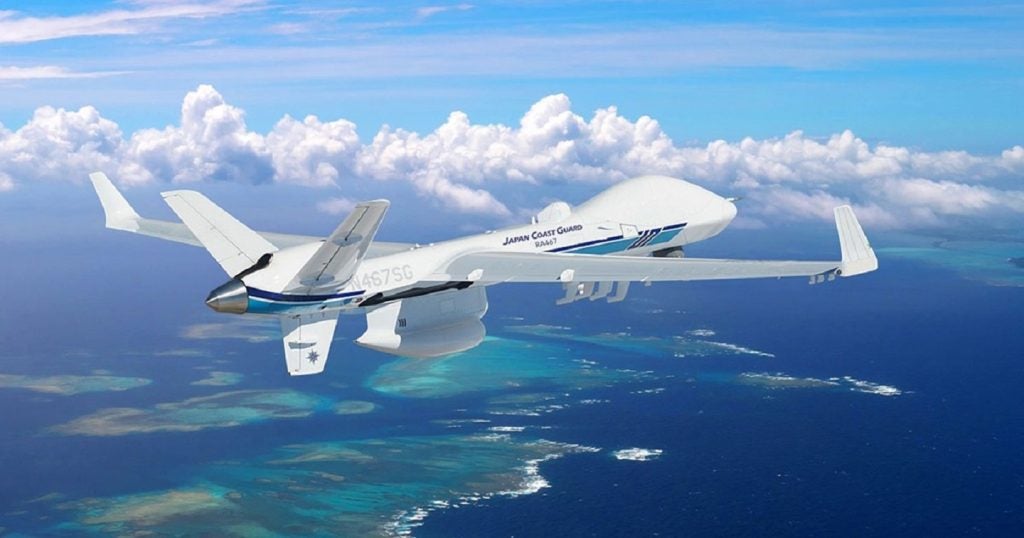Japan’s Coast Guard (JCG) has signed a contract for the purchase of two MQ-9B SeaGuardian Remotely Piloted Aircraft (RPAs) from General Atomics Aeronautical Systems (GAAS)
According to a company statement from 15 August 2024, the two systems are scheduled for delivery to the service sometime in 2025. This follows on from JCG’s ongoing company-owned, contractor-operated agreement with the supplier to operate the SeaGuardian signed in April 2022.
“Since JCG started operating SeaGuardians, they have been used for various missions including supporting search and rescue and disaster response specifically during the 7.6 magnitude earthquake early this year near the Noto Peninsula of Ishikawa Prefecture and maritime surveillance during the 2023 G-7 Summit in Hiroshima, and the system has performed efficiently and effectively,” said GAAS CEO Linden Blue.
SeaGuardian is a medium-altitude, long-endurance RPA system that can fly for 24 hours or more, depending on the configuration.
This maritime patrol and reconnaissance aircraft can seamlessly integrate a centerline wide-area maritime radar, an automatic identification system, electronic support measures, and a self-contained anti-submarine warfare mission kit.
In March, GAAS worked alongside the US Naval Air Systems Command in testing a Sonobuoy Dispensing System onboard the RPA. During the test, it deployed eight AN/SSQ-53 and two AN/SSQ-62 sonobuoys. These sonobuoys, important for detecting underwater threats, were monitored by the SeaGuardian’s onboard Sonobuoy Monitoring and Control System, validating the system’s effectiveness in real-world scenarios.
The Japanese government are also interested in a number of other uncrewed aerial systems besides SeaGuardian. Also in March, Japanese Ministry of Defence officials were welcomed to Berlin as a nation with ‘observer status’ in the Eurodrone programme, managed by the Organisation for Joint Armament Cooperation (OCCAR).
Japan initially expressed interest in the Eurodrone programme in September last year, whereupon the OCCAR director Joachim Sucker delivered a Letter of Approval confirming Japan’s observer status two months later.
Japan’s ‘observer status’ is a unique way to enable the exportability of European defence systems during development.









